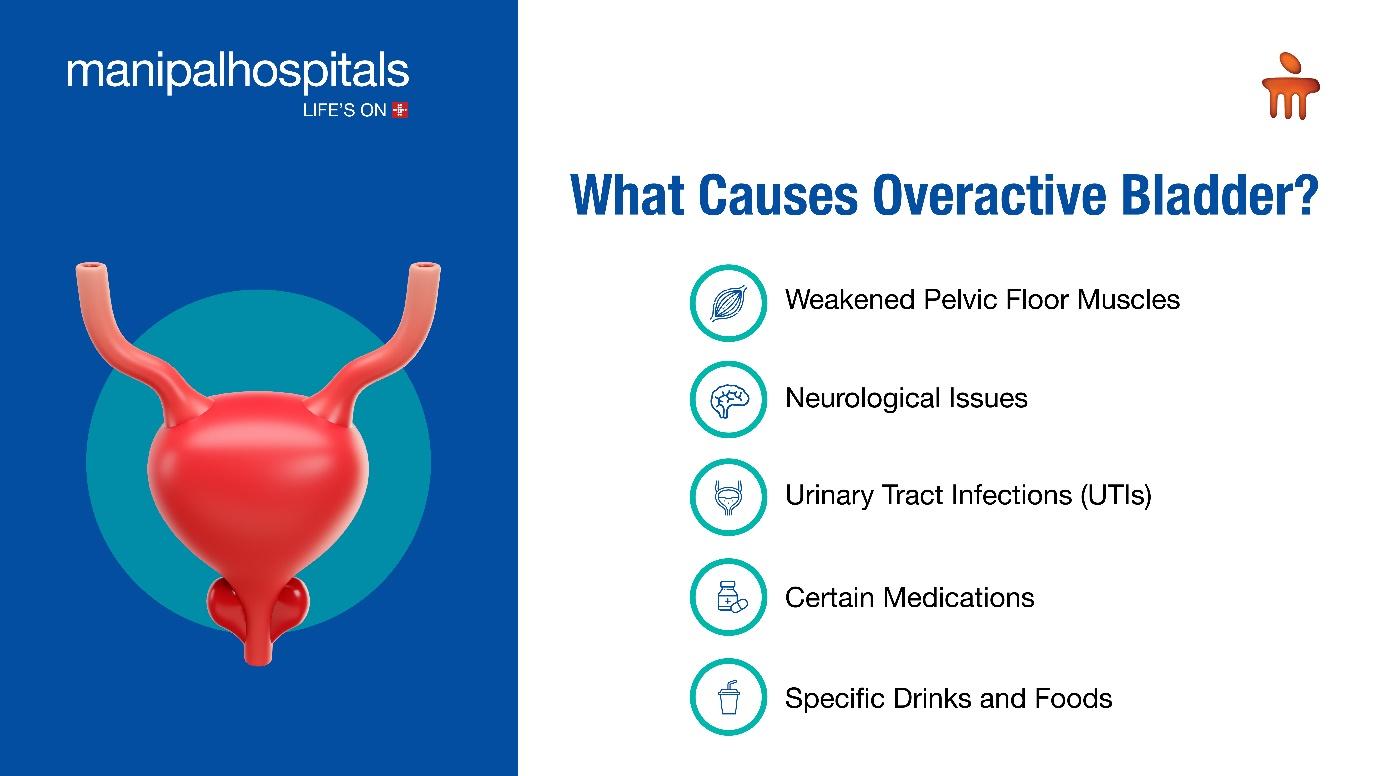
Have you ever felt the sudden urge to rush to the bathroom more often than seems normal? Or, do you feel more pressure than usual? If so, you’re not alone. A study on overactive urinary bladder suggests around 16.5% of adults worldwide might have OAB. This translates to a significant number, for instance, one source estimates over 363 million cases globally in 2020. This is a condition that doesn’t discriminate and affects both men and women, particularly as they age. But what exactly is this condition and more importantly can it be cured? Let’s explore that to break down symptoms, causes and options for treating overactive bladder.
Synopsis
What is an Overactive Bladder?
OAB or Overactive Bladder isn't a single disease, but rather a group of symptoms that affect how you urinate. The main culprit is a sudden, strong urge to pee that's difficult to hold back. Sometimes, this urgency leads to involuntary urine leakage. Usually in OAB, the muscles contract before the bladder is full. It is more common in women, especially after menopause, but it can affect anyone at any age. While there isn't a permanent cure, there are many effective ways to manage it and regain control.

Signs and Symptoms of Overactive Bladder
Here are some key symptoms listed to identify the OAB and work towards the condition more effectively:
-
Urgency: This is the tell-tale sign of feeling a sudden, intense need to urinate that's hard to control. It feels like you have to go right away, with little or no warning.
-
Frequency: You might find yourself needing to use the restroom often throughout the day, even if you haven't consumed much liquid.
-
Nocturia: This frustrating symptom wakes you up at night to urinate. One or more night-time bathroom trips can disrupt your sleep and leave you feeling tired during the day.
-
Urinary incontinence: This is the involuntary leakage of urine, often happening when you feel the strong urge to go.
Consult an urologist in Goa if you are experiencing overactive bladder symptom.
What Causes Overactive Bladder?
The exact cause of OAB can vary from person to person. Here are some common culprits:
-
Weakened Pelvic Floor Muscles: These muscles act like a sling, supporting your bladder and urethra (the tube that carries urine out of your body). When they weaken, during pregnancy or childbirth, you may have trouble controlling your bladder, leading to urgency and leakage.
-
Neurological Issues: Conditions like stroke, Parkinson's disease, or multiple sclerosis can affect the nerves that control your bladder, causing mixed messages and OAB symptoms.
-
Urinary Tract Infections (UTIs): These infections irritate your bladder lining, triggering urgency and frequency. While UTIs are usually treated with antibiotics, they can sometimes leave lingering OAB symptoms.
-
Certain Medications: Some medications, like diuretics used for high blood pressure, can increase urine production and irritate the bladder, mimicking OAB symptoms.
-
Drinks and Foods: Caffeine, alcohol, and acidic foods like citrus fruits and tomatoes can irritate the bladder and worsen OAB symptoms.
Diagnosed and Treatments?
If you suspect you have OAB, don't hesitate to talk to your doctor. Diagnosis usually involves a physical exam, urine tests to rule out infections, and sometimes a bladder diary where you track your urination habits. This information helps your doctor understand the severity and frequency of your symptoms. Once diagnosed, there's no need to despair! Here are some options suggested by doctors for treating overactive bladder that can help manage OAB and improve your quality of life:
-
Lifestyle Changes: Simple adjustments can make a big difference. Limiting caffeine and alcohol, managing stress, and maintaining a healthy weight can all help reduce bladder irritation and urgency.
-
Pelvic Floor Muscle Exercises (Kegels): These exercises strengthen the pelvic floor muscles, improving your ability to control your bladder.
-
Bladder Training: This technique involves retraining your bladder to hold more urine gradually. Through scheduled bathroom visits and holding exercises, you can increase your bladder capacity and reduce urgency.
-
Medications: Different medications can relax the bladder muscles, reduce urgency, or increase urine storage capacity. Your doctor will choose the medication that best suits your needs.
-
Nerve Stimulation: In some cases, gentle electrical stimulation can regulate bladder function and reduce OAB symptoms.
Conclusion
While there's no magic bullet for a complete OAB cure. Some natural approaches can help alongside your doctor-recommended overactive bladder natural treatment plan, such as dietary changes, weight management, overactive bladder therapies and avoiding bladder irritants. These practices significantly improve OAB symptoms. OAB can be frustrating, but it's a manageable condition. By working with your doctor and adopting healthy habits, you can regain control of your bladder and live a full, active life. Don't let OAB hold you back talk to your doctor or you can contact Manipal Hospitals, Goa for your queries.
FAQ's
-
Frequent need to urinate (urinary urgency)
-
Frequent urination (urinating more than 8 times in 24 hours)
-
Uncontrollable leakage of urine (urinary incontinence)
Diagnosis typically involves a physical exam, urine tests, and bladder diary. In some cases, additional tests might be needed.
Treatment options vary depending on the severity and causes. Some of these include lifestyle changes such as bladder training, muscle exercises, medications and surgery in rare cases.
If you experience any OAB symptoms, consult a healthcare professional for proper diagnosis and treatment.



















 5 Min Read
5 Min Read










